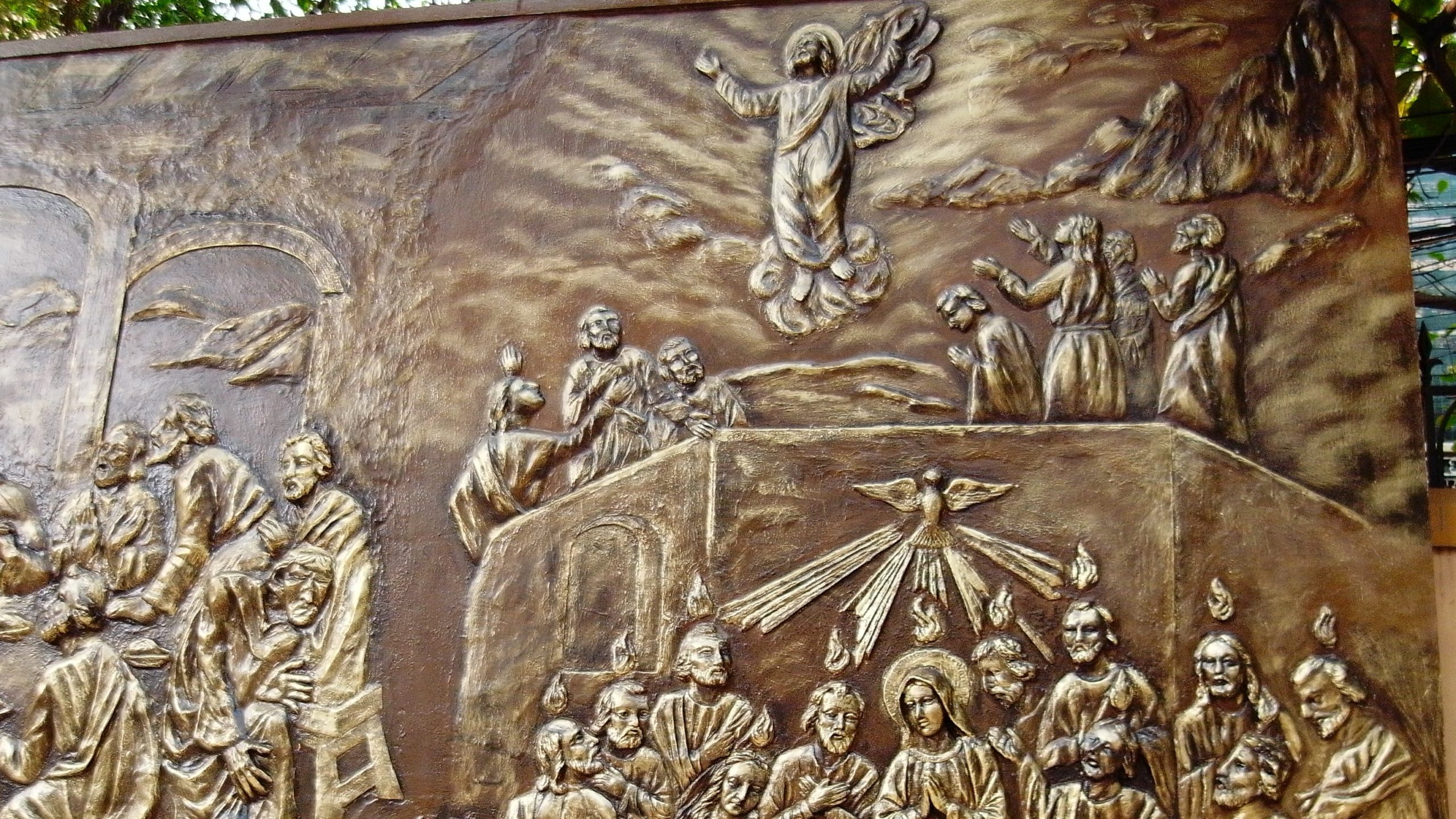
Acts 1:6-8
A Women’s Lectionary 23
6 So when theyA had come together, they askedB him, “Lord,C is this the timeD when you will restoreE the kingdomF to Israel?”G
A {untranslated} = men. This is truly, indeed, even, in fact. Often, it is not translated, but used to emphasize affirmation.
B “asked” = erotao. From eromai (to ask) OR from ereo (to say, tell, call, speak of). This is asking a question or making an earnest request. It is used between someone with whom the asker is close in some sense. So, they anticipate special consideration for their request.
C “Lord” = kurios. From kuros (authority, supremacy). This is a respectful address meaning master or sir. It refers to one who has control or power greater than one’s own. So, it was also applied to God and Jesus as Master or Lord.
D “time” = chronos. Time in the chronological sense, quantitative time or a duration of time.
E “restore” = apokathistemi. 8x in NT. From apo (from, away from) + kathistemi (to appint, set in order or set in place, constitute, give standing or authority, put in charge); {from kata (down, against, throughout, among) + histemi ((to stand, place, set up, establish, stand firm)}. This is to restore something to its original place or status. It can be give back, set up again or, figuratively, to restore full freedom or liberty. This word can also be used of healing – restoring full health.
F “kingdom” = basileia. From basileus (king, emperor, sovereign); probably from basis (step, hence foot; a pace); from baino (to walk, to go). This is kingdom, rule, authority, sovereignty, royalty, a realm.
G “Israel” = israel. From Hebrew Yisrael (God strives or one who strives with God; new name for Jacob and for his offspring); {from sarah (to persist, exert oneself, contend, persevere, wrestle, prevail) + el (God or god)}. This is Israel the people and the land.
7 He replied, “It is not for you to knowH the timesI or periodsJ that the Father has set by his ownK authority.L
H “know” = ginosko. This is to know, recognize, realize, perceive, learn. It is knowledge gained through personal experience
I “times” = chronos. Same as “time” in v6. See note D above.
J “periods” = kairos. This is season, opportunity, occasion. The word chronos is used for chronological time. Kairos is used for spiritually significant time – the right time or appointed time.
K “own” = idios. This is something that belongs to you or that is personal, private, apart. It indicates a stronger sense of possession than a simple possessive pronoun. This is where “idiot” comes from (denoting someone who hasn’t had formal training or education and so they rely on their own understanding).
L “authority” = exousia. From exesti (to be permitted or lawful); {from ek (out, out of) + eimi (to be, exist)}. This is power to act or weight. It especially denotes moral authority or influence. It can mean domain, liberty, freedom, capacity, mastery, right, force, or strength.
8 But you will receive powerM when the HolyN SpiritO has come upon you; and you will be my witnessesP in Jerusalem,Q in all JudeaR and Samaria,S and to the endsT of the earth.”
M “power” = dunamis. From dunamai (to be able, have power or ability). This is might, strength, physical power, efficacy, energy, and miraculous power. It is force literally or figuratively – the power of a miracle or the miracle itself.
N “Holy” = hagios. From hagnos (holy, sacred, pure ethically, ritually, or ceremonially; prepared for worship, chaste, unadulterated, pure to the core; undefiled by sin; figurative for innocent, modest, perfect). God is totally different from humanity and thus set apart. That which is consecrated to worship God (elements of worship) or to serve God (as the saints) are holy because they are now set apart for God’s purposes. Holy because important to God. This is sacred physically, pure. It can be morally blameless or ceremonially consecrated.
O “Spirit” = pneuma. From pneo (to blow, breath, breathe hard). This is wind, breath, or ghost. A breeze or a blast or air, a breath. Figuratively used for a spirit, the human soul or part of us that is rational. It is also used supernaturally for angels, demons, God, and the Holy Spirit. This is where pneumonia comes from.
P “witnesses” = martus. This is a witness whether having heard or seen something. It refers to a witness literally, judicially, or figuratively. By analogy, this is a martyr. This is also where the word “martyr” comes from.
Q “Jerusalem” = ierousalem. From Hebrew yerushalaim (probably foundation of peace); {from yarah (to throw, shoot, be stunned; to flow as water so figuratively to instruct or teach) + shalem (to make amends, to be complete or sound)}. This is Jerusalem, dwelling of peace.
R “Judea” = ioudaia. From Hebrew Yehudah (Judah, son of Jacob, his tribal descendants, a name for the southern kingdom. Literally, it means praised); probably from yadah (to throw one’s hands into the air in a gesture of praise); from yad (hand). This is Judea, which was a Roman province.
S “Samaria” = samareia. 11x in NT. From Hebrew Shomron (capital of the northern kingdom of Israel); from shamar (to keep, watch, or preserve; to guard something or to protect it as a thorny hedge protects something). This is Samaria, meaning watch station.
T “ends” = eschatos. Related to eschaton (end, last); perhaps from echo (to have, possess, hold). This is last, end, extreme, final. It is often used to discuss the end times, prophecies of the future, and the afterlife. The branch of theology focusing on all these topics is called “eschatology.”
Image credit: “Ascension and Pentecost” from St. Joseph Cathedral in Hanoi, Vietnam.
